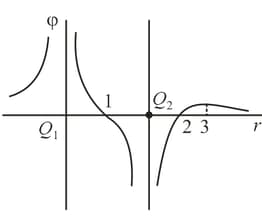A point-like charge and a dipole with an electric moment are separated by a distance that is considerably larger than the arm of the dipole, with the result that the dipole may be considered as being point. The dipole's axis lies along the lines of force of the point charge. Compare the force acting on the dipole in the field of the point charge with that acting on the point charge in the field of the dipole.
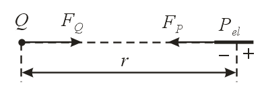


Important Questions on Electrostatics
A small uncharged sphere is positioned exactly in the midpoint between two charges whose absolute values are the same but whose signs are opposite. Suppose the sphere is shifted somewhat. Will it remain in the new position or will it move in some direction?

A small uncharged metal sphere is suspended by a long nonconducting string in the region between the vertically positioned plates of a parallel-plate capacitor, closer to one plate than to the other. How will the sphere behave?
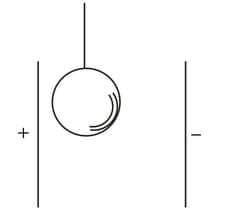
Two conducting spheres carry equal charges. The distance between the spheres cannot be considered large in comparison with the diameters of the spheres. In which case will the force of interaction between the spheres be greater (in absolute value): when they carry like charges (Figure) or when they carry unlike charges (Figure)?
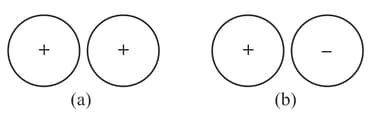
A point charge is surrounded by two spherical layers (Figure), with the electric field strength as a function of distance having the form depicted in Figure (on the log-log scale). In what layer (the inner or the outer) is the dielectric constant greater and by what factor?
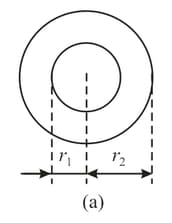
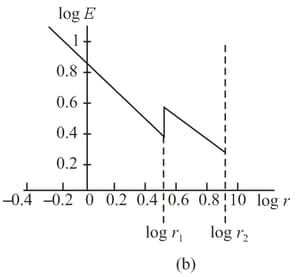
The region of space between the plates of a parallel-plate capacitor is filled with a liquid dielectric with a dielectric constant . A solid dielectric with a dielectric constant is immersed in the liquid. The lines of force in the liquid have the shape shown in the figure. Which of the two dielectric constants is greater?
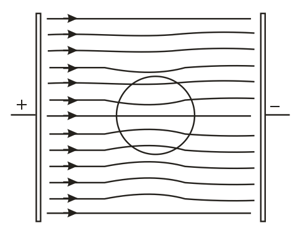
Various potential distributions between two point charges are shown in Figures (the charges are equal in absolute value). Determine the signs of the charges for each case.

Two point charges, and , are positioned at a certain distance from each other. The curves in the figure represent the distribution of the potential along the straight line connecting the two charges. At which points (, and/or ) is the electric field strength zero? What are the signes of the charges and and which of the two is greater in magnitude?
